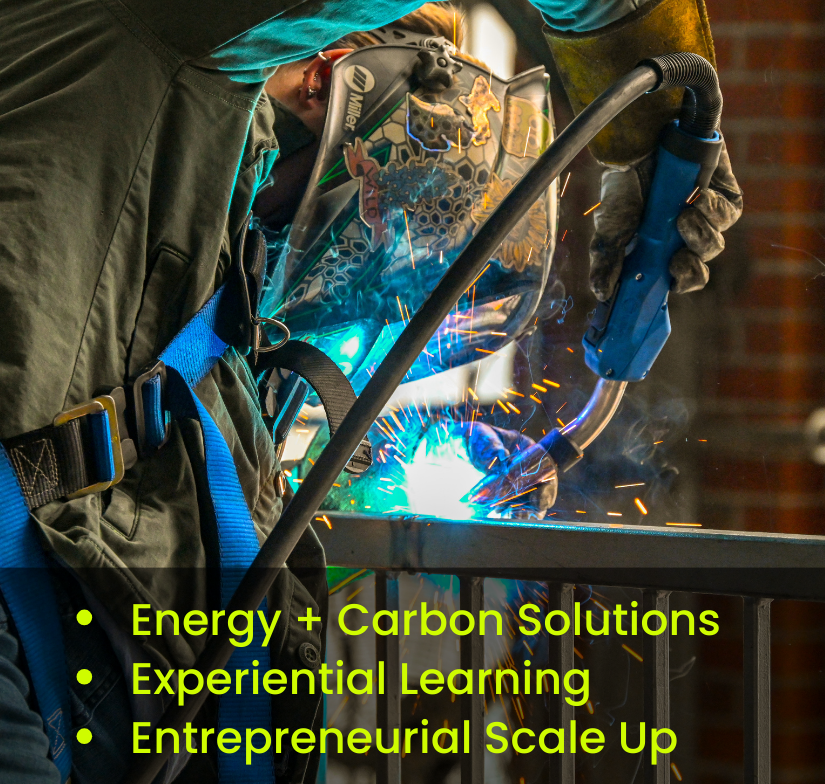Who We Are
The Colorado State University Energy Institute is a horizontally-integrated organization within the Office of the Vice President for Research (OVPR) with a mission to develop energy and carbon solutions at-scale that achieve global impact.

To fulfill our mission, we:
- Conduct research and development across a wide-range of disciplines on a host of energy and carbon solution topics spanning fundamental science to deployment at-scale.
- Provide financial and staff support to a large and diverse group of faculty affiliates within the University’s eight Colleges who develop and manage large, interdisciplinary energy and climate solutions research centers and programs, both domestic and international.
- Convene and mobilize interdisciplinary teams across CSU; identify and engage prospective industry partners; and provide funds and strategic program development support to high-priority proposal efforts.
- Sponsor and manage a portfolio of experiential learning programs that prepare CSU students for careers in energy and related cleantech industries. Programs include:
- An interdisciplinary minor in sustainable energy available to all CSU undergraduates;
- Faculty-led research & industry-embedded internships;
- Graduate fellowships for underrepresented populations;
- Multiple education abroad programs, and
- Leadership opportunities in student-led organizations.
- Serve as a local, regional, and national convener and host of in-person and virtual conferences, workshops, webinars and other events focused on thought-provoking energy and climate topics.
- Bundle and deliver a suite of programs aimed at helping CSU faculty and students commercialize technologies and start companies in the cleantech space. The Energy Institute provides prize money for best-in-class undergraduate research and budding student entrepreneurs; financial support in the form of cost-share for state-funded commercialization grants; research-to-market training for university teams planning to start companies; travel funds for entrepreneurs to conduct customer discovery interviews; mentors, seed grants, and physical space for new start-ups; and referrals to cleantech incubators, accelerators, and industry associations as companies mature.
- Infuse supplemental capital into Energy Institute programs, initiatives, and facilities by cultivating relationships with external sponsors, industry partners, donors, and NGOs, among others.
